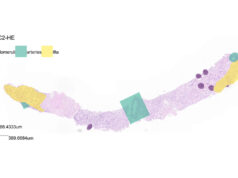
Concerns regarding infectious complications should not affect the implementation of ABO-incompatible (ABOi) kidney transplant programmes, as per the findings from a nationwide, prospective cohort study conducted across Switzerland and published recently in the journal Transplantation.
Researchers Cédric Hirzel (Inselspital, Bern, Switzerland) et al begin their report by stating that ABOi kidney transplantation expands the kidney donor pool and may help to overcome current organ shortages—but that concerns surrounding ABOi-associated infectious complications have also been raised.
In the nationwide Swiss Transplant Cohort Study, they compared the risk for infectious complications among ABOi and ABO-compatible (ABOc) living-donor renal transplant recipients. Infections needed to fulfil rigorous, prespecified criteria to be classified as clinically relevant. Unadjusted and adjusted competing risk regression models were used to compare the time to the first clinically relevant infection among ABOi and ABOc kidney transplant recipients. Inverse probability weighted generalised mixed-effects Poisson regression was used to estimate incidence rate ratios for infection, they detail.
Hirzel et al included 757 living-donor kidney transplant recipients—639 ABOc (65.4% male, median age=50.6 years) and 118 ABOi (76.3% male, median age=53.4 years)—and identified a total of 717 infection episodes.
“The spectrum of causative pathogens and the anatomical sites affected by infections were similar between ABOi-KT [kidney transplant] and ABOc-KT recipients,” they write. “There was no significant difference in time to first post-transplant infection between ABOi-KT and ABOc-KT recipients. At one year, the crude infection rate was 1.11 episodes per patient-year for ABOi patients and 0.94 for ABOc-KT recipients. Inverse probability weighted infection rates were similar between groups.”
These findings led the researchers to conclude that the burden of infections during the first year post-transplant was high, but not relevantly different in ABOi and ABOc kidney transplant recipients.
“Our results highlight that concerns regarding infectious complications should not affect the implementation of ABOi-KT programmes,” they add. “This is especially true for settings where administrative barriers or demographic conditions (such as small countries with low population) complicate the successful launch of paired kidney exchange programmes.”










